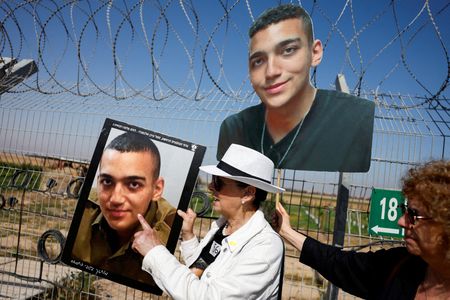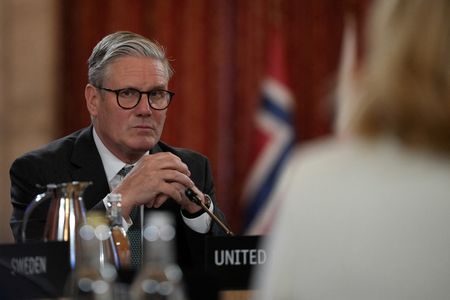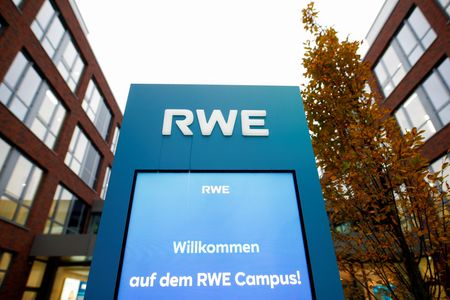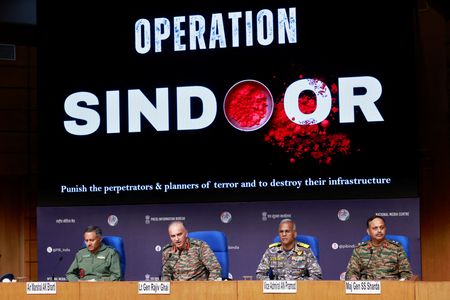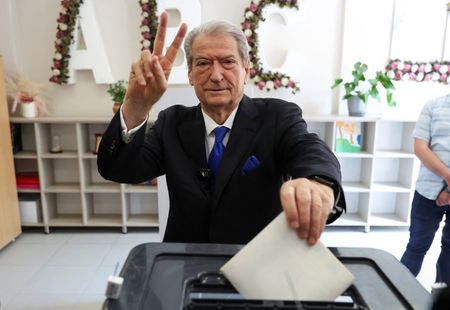By Parisa Hafezi
DUBAI (Reuters) -Fresh talks between Iranian and U.S. negotiators to resolve disputes over Tehran’s nuclear programme ended in Oman on Sunday with further negotiations planned, officials said, as Tehran publicly insisted on continuing its uranium enrichment.
Though Tehran and Washington both have said they prefer diplomacy to resolve the decades-long nuclear dispute, they remain deeply divided on several red lines that negotiators will have to circumvent to reach a new nuclear deal and avert future military action.
Foreign Minister Abbas Araqchi and Trump’s Middle East envoy Steve Witkoff held the fourth round of talks in Muscat through Omani mediators, despite Washington taking a tough stance in public that Iranian officials said would not help the negotiations.
Araqchi said the talks were “more serious and more straightforward compared to the previous three rounds”.
“We now understand each other better and hope to make further progress moving forward … Iran’s uranium enrichment must continue, although its scope and level may change,” Araqchi told state TV.
A senior official from President Donald Trump’s administration said Sunday’s “direct and indirect” discussions had lasted more than three hours.
“We are encouraged by today’s outcome and look forward to our next meeting, which will happen in the near future,” the official said.
On Thursday, Witkoff told Breitbart News that Washington’s red line is: “No enrichment. That means dismantlement, no weaponization,” requiring the complete dismantling of Iran’s nuclear facilities in Natanz, Fordow, and Isfahan.
But Araqchi said “there is absolutely no room for compromise on uranium enrichment” on Iran’s soil.
“Its dimensions, scale, level, or amount might be subject to certain limitations — for confidence-building purposes, for instance — as was done in the past, but the principle of enrichment itself is simply not negotiable,” he said after the talks.
Omani Foreign Minister Badr Albusaidi said in a post on X that the Iran-US talks included “useful and original” ideas, adding that the next round of talks will take place after both sides have consulted with their respective capitals.
TRUMP’S MIDDLE EAST VISIT
The fourth round of talks took place ahead of Trump’s Middle East visit. Trump, who has threatened military action against Iran if diplomacy fails, has restored a “maximum pressure” campaign on Tehran since returning to the White House in January.
Tehran is willing to negotiate some curbs on its nuclear work in return for the lifting of sanctions, according to Iranian officials, but ending its enrichment programme or surrendering its enriched uranium stockpile are among “Iran’s red lines that could not be compromised” in the talks.
A senior Iranian official close to the negotiating team said that U.S. demands for “zero enrichment and dismantling Iran’s nuclear sites would not help in progressing the negotiations”.
“What the U.S. says publicly differs from what is said in negotiations,” the official said, on condition of anonymity.
Moreover, Iran has flatly ruled out negotiating its ballistic missile programme and the clerical establishment demands watertight guarantees Trump would not again ditch a nuclear pact.
Trump exited Tehran’s 2015 nuclear pact with six world powers in 2018 during his first term and reimposed tough sanctions that have devastated Iran’s economy.
Iran, which has long said its nuclear programme is peaceful, has breached the 2015 pact’s nuclear curbs since 2019, including “dramatically” accelerating its enrichment of uranium to up to 60% purity, close to the roughly 90% level that is weapons-grade, according to the U.N. nuclear watchdog.
(Writing by Parisa Hafezi; Additional reporting by Elwely Elwelly, Enas Alashray and Ahmed Tolba in Dubai and Humeyra Pamuk in Washington; Editing by Elaine Hardcastle, Helen Popper and David Holmes)





